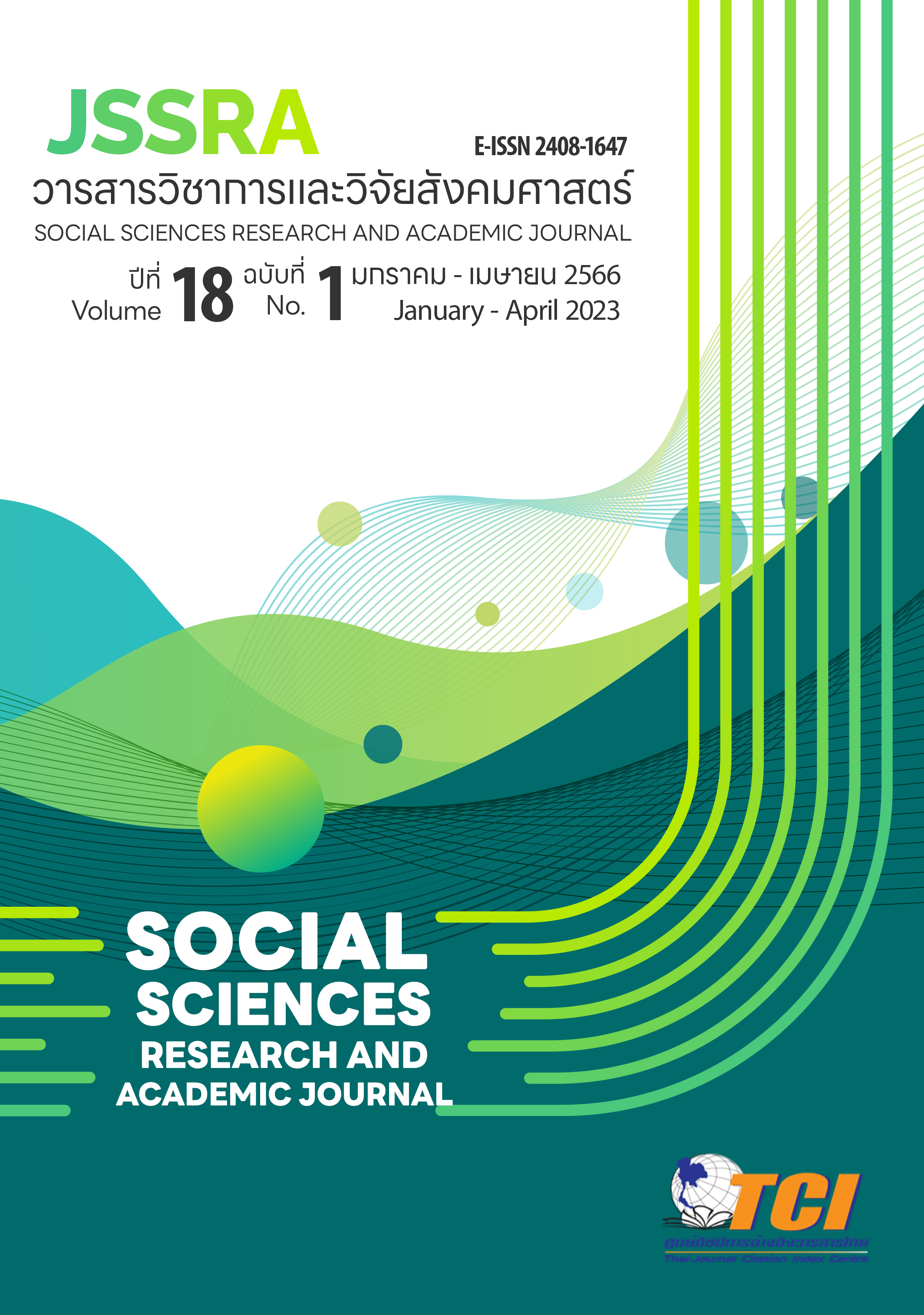The Development of Teachers' Potential Regarding Behavior Modification of Students with Special Education needs of Special Education Center
Main Article Content
Abstract
The purpose of this study was three-fold: to study of problems and needs, to develop a curriculum and to compare the development of teachers' potential regarding behavior modification of students with special education needs of special education center. The subjects were 26 respondents, including 26 teachers in the regional special education center 7, Phitsanulok and Sukhothai special education center by using specific sampling. The study was conducted during the second semester in the academic year 2019. The main instruments included 1) a questionnaire form, 2) an evaluation form of teachers’knowledge, 3) a test and 4) interview. These main instruments were administered and then data were analyzed and presented by frequency analysis, percentage, mean, standard deviation and t - test.
The results of this study revealed that
- A study of problems and needs the development of teachers' potential regarding behavior modification of students with special education needs of special education center, were as follows. Problem in workplace include behavioral problems of children with special needs (19.30%) and problem in managing stress and control emotions (17.80%). The need for the development of teachers' potential include behavior modification of children with special needs (19.30%) and stress management and emotional control techniques (19.30%)
- A development a curriculum the development of teachers' potential regarding behavior modification of students with special education needs of special education center, the knowledge and behavior modification of the teachers after the training session were higher than before the training at the significantly different level of 0.05 in all aspects.
3. The application of the knowledge in the development of teachers' potential regarding behavior modification of students with special education needs of special education center, there were no significant differences.
Article Details
References
ดนยา อินจำปา. (2559). การพัฒนาหลักสูตรฝึกอบรมการดูแลเด็กที่มีความบกพร่องทางสติปัญญาสำหรับผู้ดูแลเด็กศูนย์การศึกษาพิเศษ. วิทยานิพนธ์ กศ.ด. สาขาหลักสูตรและการสอน มหาวิทยาลัยบูรพา, ชลบุรี.
บุญชม ศรีสะอาด. (2559). การวิจัยสำหรับครู. (พิมพ์ครั้งที่ 4). กรุงเทพฯ: สุวีริยาสาส์น.
ปนัดดา หัสปราบ. (2559). รูปแบบความสัมพันธ์เชิงสาเหตุของปัจจัยที่ส่งผลต่อสมรรถนะการปฏิบัติงานของครูการศึกษาพิเศษ สังกัดสำนักบริหารงานการศึกษาพิเศษ. วิทยานิพนธ์ ปรัชญาดุษฎีบัณฑิต สาขาวิจัยการศึกษา มหาวิทยาลัยรามคำแหง, กรุงเทพฯ.
ปวิดา โพธิ์ทอง และคณะ. (2556). ศึกษาภาวะสุขภาพของเด็กออทิสติกความรู้และความเครียดของผู้ดูแลเด็กออกทิสติกที่ได้รับบริการจากศูนย์การศึกษาพิเศษ เขต 5 จังหวัดสุพรรณบุรี. รายงานการวิจัย วิทยาลัยพยาบาลบรมราชชนนีสุพรรณบุรี, สุพรรณบุรี.
สถาบันสุขภาพจิตเด็กและวัยรุ่นราชนครินทร์. (2560). เด็กออทิสติก คู่มือสำหรับครู. (พิมพ์ครั้งที่ 6). กรุงเทพฯ: บริษัท บียอนด์ พับลิสชิ่ง จำกัด.
ศูนย์การศึกษาพิเศษ เขตการศึกษา 7 จังหวัดพิษณุโลก. (2562). สารสนเทศ ประจำปีการศึกษา 2562. พิษณุโลก: ศูนย์การศึกษาพิเศษ เขตการศึกษา 7 จังหวัดพิษณุโลก.
Centers for Disease Control (CDC). (2018). Autism prevalence slightly higher in CDC’s ADDM Network. Web site. https://www.cdc.gov/Accessed September 1, 2019.
Elkhamisi, E. S. & Almutery, M. (2018). Aggression Dimensions in Students with Autism. European Scientific Journal, 14(9), 330-345.
Handen, B. L., et al. (2018). Risk Factors for Self-injurious Behavior in an Inpatient Psychiatric Sample of Children with Autism Spectrum Disorder: A Naturalistic Observation Study. Journal of Autism and Developmental Disorders, 48(11), 3678 - 3688.


